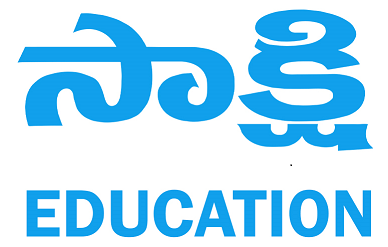August 2018 India and the World
Sakshi Education
- India, Japan resolve to deepen maritime cooperation
 India and Japan has resolved to expand their maritime cooperation and work together to ensure peace and stability in the Indo-Pacific region.
India and Japan has resolved to expand their maritime cooperation and work together to ensure peace and stability in the Indo-Pacific region.
The peace and stability of the Indian Ocean and the Pacific Ocean are crucial for ensuring the peace and prosperity of the Indo-Pacific region.
Both sides also exchanged views on the current security situation in the Indo-Pacific region, including developments in the Korean Peninsula.
They recognized that it is important for the two countries to further strengthen defense and security cooperation under the ‘Japan-lndia Special Strategic and Global Partnership.
- PM Narendra Modi terms India-China relations as factor of stability in world
Prime Minister Narendra Modi has termed India-China relations as a factor of stability in the world.
The maintenance of peace and tranquility in the border areas is indicative of the sensitivity and maturity with which India and China handle their differences, not allowing them to become disputes.
Defense Minister of China Gen. Wei Fenghe called on Mr. Narendra Modi in New Delhi where the Prime Minister appreciated the increased momentum of high-level contacts between the two countries in all spheres including in the areas of defence and military exchanges.
- India, China to have new defense MoU
India and China have agreed to work towards full implementation of ongoing confidence building measures along the disputed border, besides drafting a new bilateral Memorandum of Understanding (MoU) on defense exchanges and cooperation between the two countries.
Doklam-like incidents should be handled with sensitivity, and handled with restraint, rationality and maturity.
The long-pending issue of a military hotline continues to hang fire as India wants a hotline between the DGMO at Army Headquarters in Delhi with the Chinese army headquarters whereas China wants more than one hotline, which connects the military commands concerned on both sides. The matter has now been left for the officials to resolve among themselves.
- India, Singapore sign 2nd Protocol amending the Comprehensive Economic Cooperation Agreement to boost bilateral trade
India and Singapore have signed the Second Protocol amending the Comprehensive Economic Cooperation Agreement in New Delhi which will boost bilateral trade between the two countries.
The Protocol was signed in New Delhi on 24th August, 2018 by Rajneesh, Joint Secretary, Ministry of Commerce and Industry and Francis Chong, Senior Director, Ministry of Trade and Industry, Government of Singapore.
Both sides agreed to expand the coverage of tariff concessions, liberalize the Rules of Origin, rationalize Product Specific Rules and include provisions on Certificate of Origin and Cooperation on its verification.
- Government gives nod to Iran bank in Mumbai before US sanctions
 The Finance Ministry has conveyed to the RBI that it has no objection to allowing the Tehran-based Bank Pasargad to open its branch in India.
The Finance Ministry has conveyed to the RBI that it has no objection to allowing the Tehran-based Bank Pasargad to open its branch in India.
The clearance to the Iranian bank comes amidst the US announcing sanctions and asking other countries to minimize oil purchases from Iran
The Federation of Indian Export Organisations had earlier approached the RBI suggesting that they should allow the entry of Iranian banks into India to facilitate bilateral trade. Apart from the Iranian Bank, branch licence proposals of two South Korean banks, KEB Hana Bank and Kookmin Bank, have also been approved by the Centre.
The RBI gives its first internal clearance to a foreign bank branch proposal, it is vetted by a committee comprising senior officials of the ministries of Finance, Commerce, External Affairs and Home Affairs. Clearance from each ministry is required before the RBI issues a license to a foreign bank.
Purpose:
In the wake of US sanctions, India may explore the possibility of reviving the rupee-rial arrangement to import oil from Iran that it has used in the past.
The presence of an Iranian bank in India will open up a significant financial channel that will ensure the smooth flow of funds between the two countries.
India imports a large quantity of oil from Iran and has committed an investment of $500 million for the development of the crucial Chabahar port.
History:
The rupee-rial arrangement was used to buy oil from Iran before US sanctions were lifted against it three years ago.
Under this mechanism, India paid in Euros to clear 55 per cent of its dues, while the remaining 45 per cent payment was remitted in rupees into accounts Iranian oil companies had with UCO Bank.
- India going ahead with purchase of S-400 air defense systems from Russia
India is going ahead with the purchase of S-400 air defense systems from Russia despite American concerns, and has told the U.S. that it is for them to address concerns over its recent Russia sanctions.
India’s decision about purchasing defense from Russia may affect Indo-US relations and consensus is yet to arrive regarding matters like COMCASA.
- What is Communications, Compatibility and Security Agreement (COMCASA)?
It will enable Indian military to obtain encrypted communication systems from the U.S., Ms. Sitharaman indicated that no agreement has been reached yet.
What is CAATSA?
The U.S. has passed the CAATSA (Countering America’s Adversaries through Sanctions Act) that proposes to impose sanctions on nations that have significant defense relations with Russia.
While the U.S. Administration has said waivers will be incorporated in it to protect friends and allies, it is yet to be done.
This has generated significant concern in India which is heavily dependent on Russia for military hardware.
- India, Myanmar land border crossing pact comes into force
 India and Myanmar executed the landmark Land Border Crossing Agreement.
India and Myanmar executed the landmark Land Border Crossing Agreement.
Under this agreement check points on both sides are included as part of the pact
The opening of the check posts will facilitate travel on both sides as people holding passports and a valid visa will be allowed to exit and enter through these border check posts.
- Union Cabinet approves MoU between India and Indonesia
The Union Cabinet chaired by Prime Minister Shri Narendra Modi has approved the signing the Memorandum of Understanding (MoU) between India and Indonesia on health cooperation and Scientific and Technological Cooperation.
The MoU covers the following areas of cooperation:-
Health
Research and development, active pharmaceutical ingredients (API) and IT-based medical equipment;
Human Resource Development;
Health services; and
Any other area as may be mutually agreed upon.
Science & Technological cooperation:
The objective of the MoU is to promote cooperation in the fields of science and technology between India and Indonesia on the basis of equality and mutual benefit.
The stake-holders will include researchers from scientific organizations, academia, R&D laboratories and companies from India and Indonesia.
Information and Communication Technology; Marine Science & Technology; Life Sciences (including Biotechnology, Agriculture and Biomedical Sciences); Energy Research; Water Technologies; Disaster Management; Space Sciences, Technology and Applications; Geospatial Information and Applied Chemistry were identified as potential areas for immediate collaboration.
- Maldives wants India to withdraw helicopters, personnel even as it woos China
The Maldives wants India to withdraw military helicopters and personnel posted there following the expiry of an agreement in June.
Two military helicopters provided by India were mainly used for medical evacuations but were no longer required as the islands had built up enough resources of its own.
India and China are going head to head in the Maldives, the Indian Ocean island chain where Beijing is building roads, bridges and a bigger airport, upstaging India which has been the country’s prime provider of military and civilian aid for decades.
However, India and the Maldives are still conducting joint patrols in the islands’ exclusive economic zone every month.
Reasons for crack in India-Maldives relations
There has been a series of setbacks in India-Maldives ties, starting from March 2015 when Prime Minister Narendra Modi canceled a visit
Recent moves by Abdulla Yameen, President of the Maldives, have put Malé on a collision course with New Delhi
India criticised the government for its incarceration of former President Maumoon Abdul Gayoom and Chief Justice Abdulla Saeed, sentenced to 19 months in prison for an alleged plot to unseat Mr. Abdulla Yameen
Published date : 20 Sep 2018 05:39PM


















